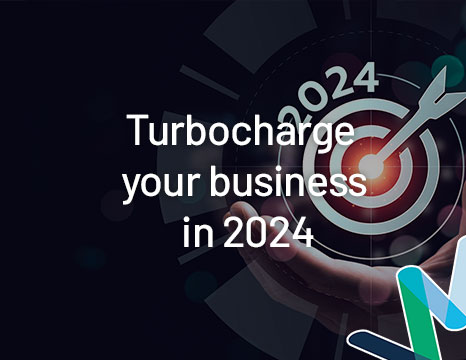Setting up your own business from home is not as difficult as once it was. The proliferation of digital technology has allowed us to be more mobile as we work. It has also created many new opportunities to explore and capitalise on business opportunities at home. There are many businesses you can set up from home. Anyone can think of an idea. The execution and strategy of your concept can make a significant difference. Sometimes you have a great business idea, but you need to launch it quickly to take full advantage of that opportunity. It’s possible to start a business from scratch in less than a week. In this article, we will provide some helpful tips on how to start a small business at home. It outlines the steps you need to take to start your business online, so you don’t lose your competitive advantage.
List of things you need to start a business
- How to develop a business plan?
- How to register your business?
- How to select a winning domain?
- What hosting solution makes sense for my new small business?
- How to ensure I have professional emails?
- How to create your inaugural website?
- How to support your new business with effective marketing?
How to develop a business plan
There is plenty of information available about how to start a business plan. Suffice to say; the first step is understanding that it is a vital first step. Your plan should identify clear goals, opportunities and financial forecasts that you want to achieve over a specified time. It must be quantified. If you believe to be successful, your customer database needs 100 clients within three months; you need to know if that is not happening. Variances alert you to potential issues. Too few customers may mean that you will not meet your revenue targets. Too many customers, and you may find your customer service standards are not being delivered. Read here for a more detailed review of the importance of writing your business plan. It’s also essential to plan how you will respond to changing conditions. Your plan should be developed for your business over 6 to 12 months. For many home-based entrepreneurs, the challenge in starting a small business at home is transitioning from the 9-5 employment arrangement, with its defined and regular salaries, to creating a home-based business. Your business plan should consider this shift, and a transition plan is often required. Here are a few tips on how you can transition from your permanent employment to becoming a business owner. Your business plan should become your guide when running your business. When recording your business plan, consider some of the following business questions:
- Who is my most likely customer? Who should I be targeting?
- How can I reach that customer, and what problems do they want me to solve?
- What budget do I have?
- Where do I want the business to be in 12 months?
- Who are my competitors, and how am I different?
- What revenue targets do I need to achieve?
An effective well-considered business plan should guide and inform the following steps in starting your Australian online business. 
How to register your business?
To start a business in Australia, you will need an ABN (Australian Business Number). An ABN is an 11 digit numeric identifier used on day-to-day invoices, quotes and business to business documentation. Many companies look for an ABN to ensure the credibility of another business and, in some instances, will not interact with another business that does not quote an ABN number. Registering for an ABN is easy, but first, you need to understand, in a practical sense, what they are used for and whether you are eligible to apply. Registering your ABN is straightforward and fast. Visit this site and you can register your ABN and new business name within just 5 minutes!
How to select a winning domain?
Your domain is the cornerstone of your digital presence. When registering your ABN, you will have provided your new business name. That name will often be vital in determining your preferred domain name. It is the name that your customers will search for when looking for your business online. Ensure you think carefully about the domain name you select for your business. Click here for some helpful guidance on selecting the best business name for your business. It will enable you to register a domain name that will support your business into the future. Think carefully about the domain name extension that best makes sense for your business. The domain name extensions are the address extensions that follow your chosen domain name, such as .com.au or .sydney. Today there are quite a few to select from, including the new .au extension, which is much shorter,easier to remember and provides better SEO rankings. In many cases, entrepreneurs will register more than one domain to better protect their business from would-be imitators and competitors. Take a few minutes to have a quick flick through the following articles about selecting your domain name/s:
- Pros and Cons of a Good Domain Name
- 7 Reasons to Register Multiple Domains
- Should I Buy a .au Domain
- Benefits of a local .Sydney or .Melbourne Domain Name

What hosting solution makes sense for my new small business?
Hosting is the capacity your business can access on a large computer server connected to the internet. Hosting will serve up and manage your website files to your visitors. You will require such hosting for your website and your business emails. Generally, hosting is purchased by businesses using a monthly subscription model. When starting a small business at home, selecting hosting that meets your needs now and in the next twelve months will be necessary. For example, do you require hosting that will accommodate e-commerce and multiple product description pages? Alternatively, yours may be a new business that sells your consulting services. Your target customers may not need a multi-page website with e-commerce functionality. Remember also to refer to your business plan. Where do you want the business to be 12 months from now? What impact will that have on your required website? When selecting the best web hosting solution for your own business, you should consider the following:
- Uptime – the percentage of time your website will be operating
- Website servers geographical location – look for Australian based servers
- Service provider technical and customer support
- Reviews from other users
- Scalability – can the service grow with my business
- Web hosting cost. Free web hosting or even cheap web hosting may be a false economy.
Read our Top 10 Factors to Consider for Website Hosting Services to get a more detailed overview of web hosting selection.
How to ensure I have professional emails?
Jettison those Gmail or Hotmail accounts. It’s vital to make a great first impression when speaking to potential customers. A professional business email address can do just that. Before deciding on the business email service for your new business, ask questions about the following:
- Security: Look for anti-spam and anti-malware security features. Check that the service offers regular backup protocols to protect your data.
- Support: Select an email host that provides the help you need when you need it.
- Flexibility: Can you access your emails on the devices you need wherever you are?
- Storage: Email hosting services that offer at least 50GB of storage space should be your choice.
- Uptime: Discover what uptime guarantees are available.
Compare these three email hosting plans. 
How to create your inaugural website?
This whole process does not have to be complicated when it comes to building a website. Read this article to discover the features of the best website builders that matter when you are ready to build your website. It’s a great place to start. Another tool available is our Free Website Launch Checklist – so you don’t miss anything. When starting a small business at home, entrepreneurs will often decide to build their websites themselves. With Do It Yourself Websites, you maintain complete control. The tap-to-tailor tool on the website builder makes it easy for you to design and build your website, and there is no coding required. Most Do It Yourself Websites include templates designed to suit different business sectors. It’s possible to build your website in a few simple steps. Choose a template, customise it with your photos, logo, and copy, and you’re ready to go live. If time is at a premium and you want to focus more on other aspects of your business, you may select to have a website built for you. From design through to development and launch, everything is done to create a website that looks professional and perfectly reflects your brand. It is crucial to ensure that your website is engaging and remains so. As your business grows, developing high-performance content can be a little overwhelming. You need to constantly review your site and provide fresh, new and engaging content, from blogs to product reviews. In these instances, we would recommend seeking external support in the development and delivery of great website content.
How to support my business with effective marketing?
It’s time to refer to your business plan again. You know how much you can spend on marketing. You know who you want to communicate with and you know what you want to say. You might start communicating with your targets with Facebook and Instagram advertising. Or you might pursue a hot lead or inspire a repeat purchase through Facebook remarketing. Why not invest in some search engine advertising? Search engine advertising is pay-for-click advertising that uses Google or Microsoft Ad services. It can be highly cost-effective as you only pay when someone clicks on your ad. Search engine optimization (SEO) is also part of your digital marketing programme. SEO gets your website on page one of Google for your keywords through on-page optimisation, so you’re front and centre to those looking for your specific products or services.
If you need support in developing the best digital marketing strategy for your business, we can help.
Need any advice on how to start a small business at home? Webcentral is here to help you plan your digital journey and get you set up. We’re Australia’s leading small business online marketing experts. From your email and website, through online marketing and social media, we can do most of the hard work for you, so you can focus on doing what you do best, getting your business moving.




